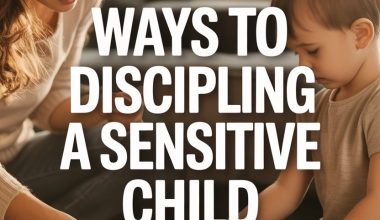If you’ve ever watched your child bounce off the sofa and do a full Olympics routine on the coffee table at 8:30 p.m., you might have muttered, “Well, someone’s full of energy tonight.”
The punchline? They’re not actually hyped up. They’re overtired.
And yes, it’s as counterintuitive as socks on a rooster.
It’s easy to get fooled by all the giggles and stunts, but overtiredness in kids has a sneaky way of masquerading as hyperactivity.
Spotting the difference could be the secret to fewer bedtime tears—for everyone. Here’s how you can tell when your little tornado is actually running on empty.
1. Meltdowns Appear Out of Nowhere
One minute, your child is serenely constructing a Lego castle. The next, they’re in full meltdown because the blue brick is “the wrong blue.”
This is not the garden-variety tantrum. Overtired kids lose their emotional buffer—the tiniest inconvenience turns volcanic.
When sleep debt piles up, emotional regulation goes out the window. Research from the Sleep Foundation shows that tired children have more frequent and intense mood swings, even if they seemed fine an hour ago.
If the end of snack time feels like the end of the world, your child may simply need their bed—not a lecture on snack etiquette.
2. Clumsiness Takes Over
Your usually steady-footed child starts tripping over thin air, spilling juice before it’s left the table, and missing the mark in any game that requires actual aim. Classic clue.
When little brains are tired, coordination takes a nosedive. This isn’t your child being careless; it’s their motor skills waving a white flag.
Studies (and, let’s be honest, anyone who’s been around a toddler post-naptime) consistently note that fatigue leads to more accidents and clumsiness.
If you notice a sudden spike in stubbed toes and toppled towers, it’s probably not a growth spurt—it’s exhaustion.
3. Wired but Weepy
Eyes wide, chattering non-stop, legs that refuse to sit still—yet, suddenly, the waterworks switch on.
Overtired children can look like they’ve just guzzled a litre of energy drink, except their “energy” is a stress response, not a sign they’re ready for another round of hide-and-seek.
According to paediatric sleep expert Dr. Judith Owens, overtiredness causes the body to produce more cortisol and adrenaline, which masks sleepiness but also causes mood swings and tears.
If your child’s gone from giggling to sobbing in ten seconds flat, this isn’t just drama—it’s probably a sign they need sleep more than a snack.
4. Refusal to Sleep Gets Intense
“Sleep is for the weak!” declared every overtired child, ever. There are few things more exasperating than a child who is obviously exhausted but fights bedtime like it’s a battle for civilisation as we know it.
An overtired child’s body is full of adrenaline, making it much harder to wind down. You might see constant requests for “just one more story,” requests for water, or a sudden fascination with ceiling spiders.
The NHS reports that overtired children don’t just resist sleep—they become more alert and harder to settle as fatigue deepens.
If it feels like you’re negotiating a peace treaty every bedtime, your child’s resistance may be a red flag for overtiredness.
5. Fidgeting and Restlessness Peak
If your child suddenly seems to have the urge to tap, wiggle, bounce, or otherwise impersonate a wind-up toy, overtiredness could be at play.
Tired brains can struggle to process stimuli, so kids become more physically restless—think of it as “the jitterbug” meets “I need a nap.”
Researchers from Johns Hopkins All Children’s Hospital note that hyperactivity and restlessness, especially in the evening, are common signs of sleep deprivation in children.
If your little one just can’t sit still after a long day, sleep might be the only thing that can put the brakes on.
6. Short Fuse with Siblings or Friends
Suddenly, sharing is impossible, every slight is a personal affront, and peace treaties crumble over who gets the “good” spoon. Sound familiar?
Sleep deprivation erodes patience. It’s not that your child has completely lost their moral compass; their brain is simply too tired to play nice.
A Harvard Medical School report highlights that fatigue reduces impulse control, making it hard for kids to manage frustration or cooperate.
If your usually friendly child turns into a tiny dictator at the end of the day, the culprit isn’t a bad attitude—it’s overtiredness.
7. Zoning Out and Glassy Eyes
Every parent knows the look: glazed-over eyes, slow blinks, maybe a slack jaw. Your child stares right through you as if you’ve transformed into a particularly boring pot plant.
When children are overtired, their brains start switching off in tiny micro-sleeps, even if their bodies are still upright.
The American Academy of Pediatrics points out that daydreaming, sluggish responses, and blank stares are classic fatigue markers.
If you catch your child zoning out mid-sentence or blinking extra slowly, it’s not that they’re ignoring you (entirely)—they’re running on fumes.
What You Can Do When You Spot the Signs
Once you’ve realised your child is overtired rather than full of beans, it’s time to act—because no one wants round two of The Great Bedtime Stand-Off.
Some practical strategies can help you get ahead of tired tantrums and bring bedtime back from the brink.
Bring Bedtime Forward
If you can, start the wind-down routine 15–30 minutes earlier. Dim the lights, switch off screens, and break out your best soothing monotone for storytime.
Keep Things Predictable
Routine is your secret weapon. Bath, pyjamas, book, bed—the more consistent you are, the easier your child will find it to understand when sleep is coming.
Go Low-Stimulation
Resist the urge to “wear them out” with more play. Overtired kids can’t handle extra excitement. Calm, quiet activities (think puzzles or gentle music) are your best bet.
Watch for the Sleep Cues
Yawning, rubbing eyes, pulling at their ears, or suddenly going quiet means it’s time to move swiftly. Delay, and you risk tipping into meltdown territory.
Don’t Negotiate with Sleep Terrorists
Once the routine starts, stay firm. Endless bargaining only revs up overtired kids more. Calm repetition is your friend: “It’s bedtime now.”
Mind the Naps
If your child is still napping, a missed nap can spell disaster by dinnertime. Try not to let them skip, even if it means a car ride or a pram walk to make it happen.
Give Yourself Some Grace
Even the best-laid plans will sometimes go sideways. If bedtime implodes, tomorrow is a new chance. (And there’s always coffee.)
Why Spotting Overtiredness Matters
Overtiredness does more than just make evenings feel like a slog through emotional treacle.
Chronic sleep deprivation in children can impact growth, learning, and even immune function, as detailed in this comprehensive overview from Stanford Children’s Health.
Getting ahead of overtiredness isn’t about being a perfect parent. It’s about giving your child (and yourself) a better shot at a peaceful night—and possibly, just possibly, a lie-in the next morning.
When Exhaustion Disguises Itself as Extra Energy
Next time your child is buzzing around the room at bedtime like a caffeinated squirrel, remember: they’re not wild, just weary.
Spot the signs, switch up your routine, and soon you’ll both be catching more zzz’s (and fewer flying soft toys).
Wishing you bedtime routines that run smoother than your morning coffee machine—and far less noisy.




